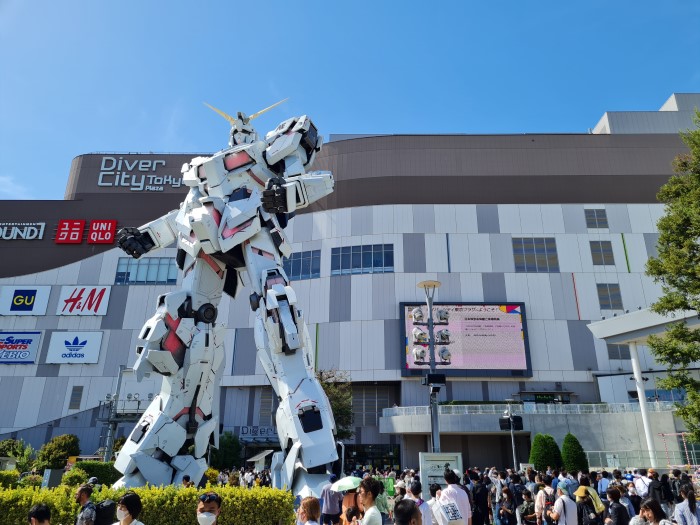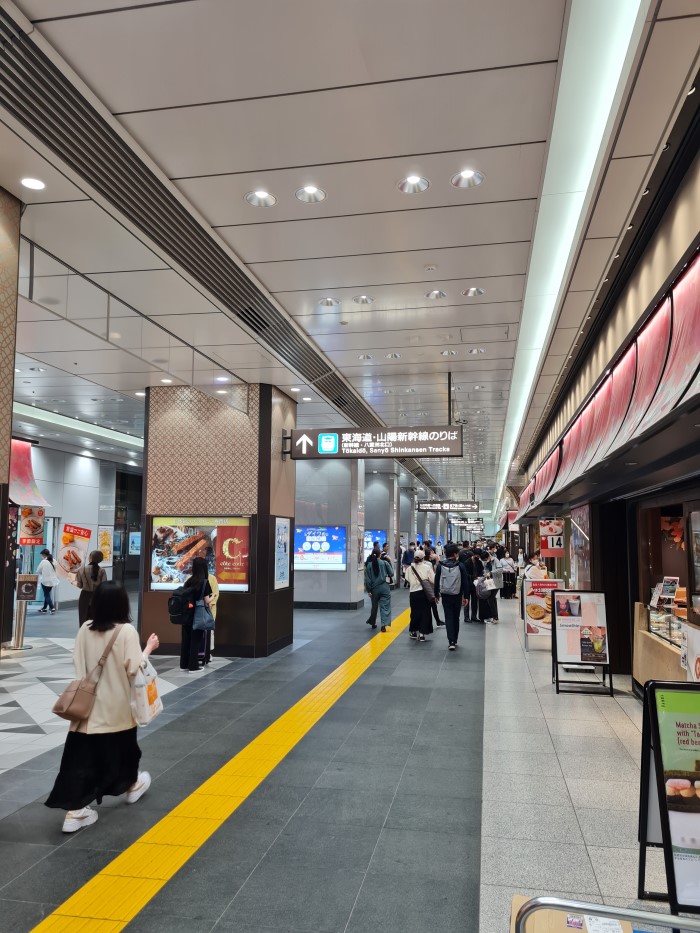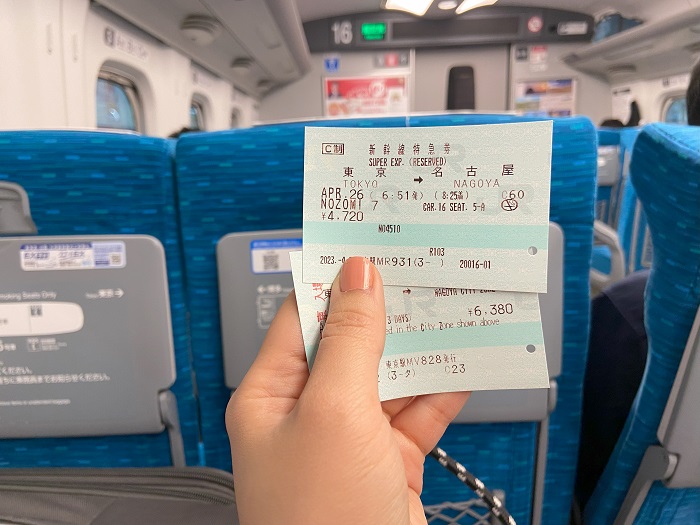Is English spoken in Japan?
If you're planning a trip to Japan or just curious about linguistic differences around the world, read on for an enlightening discussion of English in this fascinating country.
May 27, 2023 | Read time 16 minutes
Table of contents
Introduction
Ever planned to go to Japan, but afraid that there is not much English spoken there?
In general you can get around Japan pretty easily without the need to be fluent in Japanese. Most people who are working in the tourism, travel or hospitality industry in Japan will have a basic proficiency in English.
When I first traveled to Japan, I knew nothing of the language. Surprisingly you can get around pretty easily as a tourist. Now living and working in Japan is another matter.
As of writing, Japan ranks 80 out of 111 countries in terms of English proficiency - with a EF EPI score: 475
We can see that the major cities have higher English proficiency scores than the others:
| City | Score |
|---|---|
| Tokyo | 522 |
| Kyoto | 512 |
| Yokohama | 506 |
| Sapporo | 505 |
| Osaka | 504 |
| Kobe | 490 |
| Kawasaki | 485 |
| Nagoya | 479 |
| Fukuoka | 470 |
Note on EF EPI scores
- EF EPI score 500 - 549: means they have moderate proficiency - eg able to write professional emails, attend meetings
- EF EPI score 450 - 499: means low proficiency - eg able to have short casual conversations, understand emails
The history of English language adoption in Japan
The history of English learning in Japan can be traced back to the mid-19th century when Japan opened its doors to the outside world after a long period of isolation.
-
In the late 19th century - The first formal English language instruction in Japan with Christian missionaries. They created schools and taught English primarily for religious purposes.
-
Early to mid-20th century - With the Meiji Restoration, Japan sought to adopt education models from America and England. English textbooks were imported from these countries. English education was only for reading and translation, with little on spoken English.
-
World War II (1940s): English education was suspended due to its association with Western countries.
-
After World War II (1950s-1960s) - Japan underwent a period of rapid economic and social reconstruction - the government initiated reforms to improve English education. The focus shifted to oral communication skills, and conversational English became a key component of language education.
-
1989 (Heisei era) - the Japanese government passed the English Education Act in 1989. The act aimed to promote English education and improve English language abilities among Japanese citizens, particularly in schools and universities.
With globalization, English has become more crucial than ever in Japan. Many Japanese companies require English proficiency for employment, and the demand for English education has increased in various sectors, including business, tourism, and academia.
What percentage of Japanese people speak english
Its been estimated that 8 to 30% of Japanese people can speak some level English. In more modern and popular cities, the amount of people who can communicate in English is higher. As an example, in Tokyo, the Tokyo Metropolitan Government conducted a census and found that around 40% of Japanese can interact in English in some way.
Most Japanese people will have to learn English as part of their high school curriculum.
A survey of 1,200 individuals aged 20 to 49 back in 2013 by Cross Marketing Co., Ltd., contains some insights in the percentage of people speaking English. Some highlights of the survey includes:
-
Japanese students showed above-average proficiency and interest for English, it dwindles as people transitioned into the workforce and grew older.
-
In fact, the survey unveiled that 41.6% admitted they “cannot speak English” and 30.4% mentioned being limited to words like greetings and food orders. So this means that more than 70% of respondents struggled to communicate fluently in English.
-
Respondents working in managerial positions, over 50% confessed to not being able to speak English fluently. Unsurprisingly, the majority of people who worked in industries that require English (tourism, hospitality, academia) responded that they are fluent in English.
-
When asked about their desire to learn English, a remarkable 57% of respondents expressed an eagerness to learn English.
Implications for Travelers
English may not be widely spoken in Japan, particularly among the older generation and those outside academic settings. However, don’t be disheartened! While navigating the country, you’ll encounter English in various forms, such as signs, menus, and transportation announcements, providing a helping hand during your adventures.
So when you get lost and need directions from a local - probably you would have a better chance asking a student than a elderly person.
Can you get around Japan with English
Traveling in Japan without knowing too much Japanese and relying on English alone is not too difficult. Whether you are traveling by train, bus or taxi, theres usually signage, staff and maps to help guide you.
Traveling on the trains and subway
If you are traveling by train or subway, theres English use everywhere - this ranges from the station itself, the staff, and on the trains.
-
Signs - most signage such as station names, platform numbers, and directional signs usually have English translation. The the very least they have color coding and the train service letter.
-
Announcements - in major cities there are a few announcements in different languages. This includes English, Japanese and even Korean. Whether you’re boarding the iconic Shinkansen or hopping onto a local line, these English announcements keep you informed and at ease throughout your journey.
-
Ticket Machines - pretty much all ticket machines come with an English language option readily available - making purchasing tickets a breeze.
-
Station Staff - not all station staff know English, but they usually know some words - best to have your translator app ready.
-
Maps and Brochures - There are English maps and brochures around each of the stations in Japan. These can be valuable for you to plan your trip.
-
Apps and internet - make sure that you have internet while traveling. Options include getting a pocket wifi or roaming data on your mobile phone. Also make use of apps like Google Maps, Apple/Android translator apps.
Traveling on the buses
English use on the buses is not a much as the train and subways, but it is enough to help you get around.
-
Bus stops usually have limited English signage. When there is no English, they at least they have the bus numbers - so you can look it up in Google Maps or their official website. If the signage does not have English available, I found the Translate app on iPhones to be quite good. (https://support.apple.com/en-gb/guide/iphone/iphd74cb450f/ios). You just need to take a photo of the signage and it will give you the translation. If you are using Android phones, then there is the Google translate option.
-
Bus schedules and timetables - Major bus companies and transportation centers often provide English brochures or online resources that detail routes, departure times, and fares. For example if you are in Tokyo, then refer to the JR East, Toei Bus, Keisei Bus, etc. They would have English timetables
-
Buying tickets - there are a variety of options to get tickets on the bus. I found the most convenient option is to get a Passmo or Suica pass. You just enter the bus on the back (2nd) door and tap your pass - tap the pass again when you go off the bus.
If you are traveling on a JR (Japan Railway) bus, you will need to get a JR pass. When go arrive at your destination and go off the bus, just show the bus driver your JR pass.
If you do not have a pass, then the bus will have a ticket machine on the bus. Just remember to pay in cash - most buses do not have card payments.
-
Bus Operators and Staff - While not all bus drivers may speak fluent English, many are willing to provide basic information, directions, and help with ticketing.
-
Audio and visual announcements - In larger cities, such as Tokyo, and tourist destinations, buses often feature audio and visual announcements in multiple languages, including English. These announcements inform passengers about upcoming stops, major attractions, and transfer points.
-
Mobile Apps and online resources - its a good idea to have some form of internet connection when traveling on buses. You can either get a pocket wifi, mobile roaming.
Traveling by taxi using English
From my travels, I found that taxis are a bit hit and miss in terms of being able to communicate using English. This is mainly due to needing to interact with the driver.
There are a few ways to make your travel on taxis easier if English is a barrier:
- If you are staying at a hotel, usually you can ask the staff to call the taxi. One tip to take the hotel’s business card. This will come with the hotel’s telephone number. The taxi driver’s GPS app have an option to enter in a phone number and it will determine the exact coordinates. This reduces confusion - just hand them over a number instead of a English location.
- Many taxi companies provide destination cards or maps with popular tourist spots and addresses written in both Japanese and English. These handy resources allow you to easily communicate your desired destination to the driver.
- Use apps such as Uber, GO, DiDi to reduce miscommunication.
- Payments - most taxis use meters to calculate fares. The fare is displayed on the meter, ensuring transparency and avoiding any confusion. One tip is to carry cash, since I have found the card processing machines do not always work.
Ordering food in English
Ordering food at Japanese restaurants is quite simple. They usually have both English and Japanese menus. If the restaurant that you went to does not have English, they usually have pictures or displays of the food in front of the restaurant.
There are a lot of restaurants that just have a ticket machine in front. That will have both English and Japanese, so you just need to select and pay for your food without any interaction needed from the staff.
Hospitals and Medical centers
Now if you are in need of medical care, there are hospitals that you can visit that have English speaking staff.
You should check if the medical facility is Japan Medical Service Accreditation for International Patients (JMIP) or Japan International Hospitals (JIH) certified.
These two certifications tells you that they have English speaking doctors and nurses.
If you are in Tokyo:
- In case of an emergency requiring an ambulance, dial 119. English-speaking operators are available 24/7.
- If you’re unsure whether you need an ambulance or not (only available in Tokyo), you can seek advice from the ENS (Emergency Medical Services) provided by the Tokyo Fire Department, which offers English assistance.
- The Tokyo EMS Guide helps you decide whether to go to the hospital or call an ambulance.
- The Tokyo Metropolitan Medical Institute Information provides staff with foreign language abilities who can guide you on healthcare, insurance systems, and medical institutions. They support English, Chinese, Korean, Thai, and Spanish languages. Contact them at 03-5285-8181 from 9:00 AM to 8:00 PM daily.
- An Emergency Translation Service is available to assist with communication between you and the doctor. They support English, Chinese, Korean, Thai, and Spanish languages. Call 03-5285-8185 on weekdays from 5:00 PM to 8:00 PM and on weekends and holidays from 9:00 AM to 8:00 PM.
Tips about English in Japan
- Popular cities like Tokyo have more English translation than other cities like Nagoya. This ranges from signage, brochures, staff and locals. So if you are traveling to the countryside be prepared to learn a bit of Japanese.
- The older generation speak less English than the younger ones. So when you need assistance, probably your best bet is to ask a student.
- It is a good idea to learn some simple phrases to make your interactions easier.
Some phrases to consider remembering includes:
- Good morning Ohayo gozaimasu
- Good day Konnichiwa
- Good evening Konbanwa
- Goodbye Sayounara
- Thank you (very much) Arigatou (gozaimasu)
- That’s delicious Oishi desu
- Nice to meet you Yoroshiku onegaishimasu
- Where is (place)? (Place) wa doko desu ka?
- Excuse me Sumimasen
- I’m sorry Gomen Nasai
- How much does it cost? Ikura desu ka?
- I understand Wakarimasu
- That’s OK Dai joubu desu
- Please say that again Mo ichido onegaishimasu
- I don’t understand Wakarimasen
- I don’t speak Japanese Nihongo ga hanasemasen
- Do you speak English? Ei-go ga hanasemasu ka?
Final thoughts
Generally, you do not need to know a lot of Japanese to travel around Japan. There are a lot of English translations in Japan - this ranges from signage in stations, English speaking staff, restaurants, shops and hospitals all have English translation services or staff to help you.
One thing to remember is that in major cities like Tokyo - English is more prevalent than other country side towns. To make your travel more smooth, I would recommend getting some form of internet (eg pocket wifi) and apps such as Google Maps, Apple/Google Translate, and ride sharing Uber, GO, DiDi.
Now if you are really stuck and need assistance from locals, I would suggest asking middle to highschool students since they would be practicing English way more than the older generation!
References

Does the JR Pass cover Tokyo Subway?
May 26, 2023The JR Pass does not cover Tokyo Subway - here are some tips we can get around that!

Can you use JR pass for bus?
May 24, 2023Tips to use JR pass on buses

Do you need a visa to get JR Pass?
May 23, 2023Navigate Japan like a pro with our comprehensive guide on the JR Pass and visa rules.
About me
Hi there, I am Alex and I love sharing my recipes and travel tips.
I share recipes that I have encountered during my travels. My blog focuses on budget travel and offers tips on how to save money while still having a great experience.